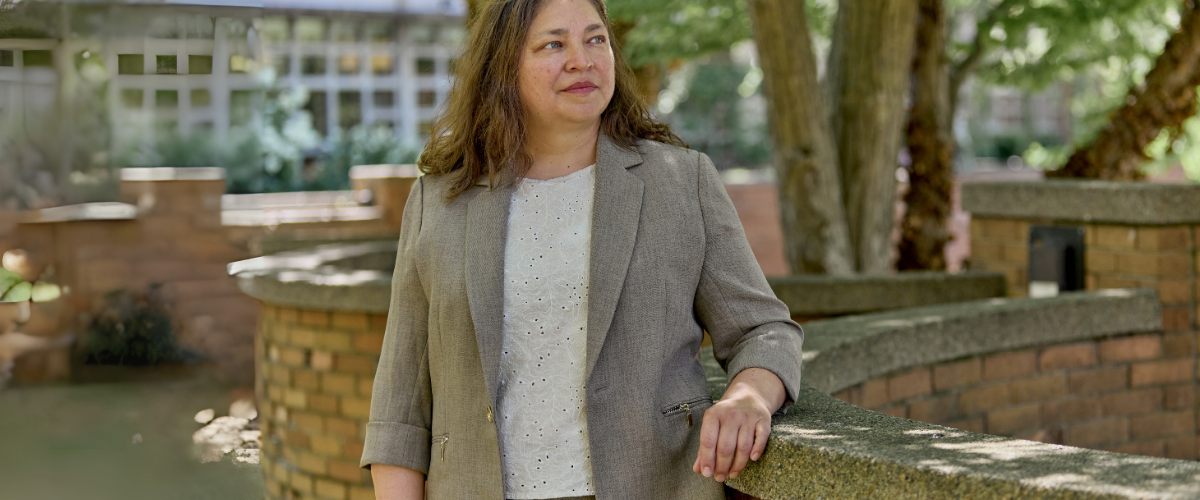M. Patricia Fabian
Associate Professor, Environmental Health, School of Public Health | Associate Director, Institute for Global Sustainability (IGS)

Environmental health researcher connecting climate resilience, health, equity, and sustainability
About
I started my education in industrial and systems engineering in Mexico. After one of my first internships at a large smelter plant, where I conducted air testing for lead pollution, my transition to environmental work began. From there, I pursued a master's in environmental engineering, shifting my focus from industrial processes to bacteria, fungi and chemical pollutants in indoor air. But I found something was missing: the connection to human health. So, I transitioned into public health and got a Doctor of Science in Environmental Health.
While I still think of myself as an engineer, I’ve always been drawn to what we now call “sustainability” - which, in my mind, connects environmental systems and public health. Today, my research reflects this interdisciplinary approach, spanning climate resilience, health, equity, and sustainability in the built environment.
My journey at BU began as a postdoctoral researcher. We built a systems science model to understand how weatherizing homes affects indoor air quality, particularly for children with asthma. The model simulated changes in pollution levels, lung function, and emergency room visits. Fast forward many years, we’re still asking similar questions, now through the lens of decarbonization, clean energy transitions, and health equity.
BU Highlights
As Associate Director at the Institute for Global Sustainability (IGS), I bring a public health lens to sustainability research. My research focuses on three key areas: building resilience to extreme heat, improving indoor air quality in homes and schools, and supporting clean energy transitions. I work with amazing interdisciplinary teams of students and researchers on all these projects.
I lead multiple studies of extreme heat, including the B-COOL project in partnership with the City of Boston and local organizations, where we monitor temperatures to inform more equitable heat warning systems. I also co-lead the C-HEAT project with Professor Madeleine Scammell, in collaboration with the community organization GreenRoots and the city of Chelsea. For C-HEAT, our research changes annually based on community needs and interests. One of our projects evaluated urban cooling strategies, like painting roofs white or planting trees in single urban blocks, and their impact on temperatures and public health.
Another project I lead is the Community Adaptations to City Heat (CATCH), which aims to make visible the health impacts of extreme heat by connecting seemingly unrelated policies – ranging from tree planting, AC giveaways, and energy subsidies to housing upgrades and energy transitions. For instance, decarbonization often involves weatherization, which helps maintain healthy indoor temperatures and lowers energy bills—both of which have significant health implications for residents of frontline communities. This project involves a large team of interdisciplinary researchers from BU and partners in Boston, New Orleans and Phoenix.
My research team partnered with Boston Public Schools to analyse data from their 4,000+ indoor air quality (IAQ) and temperature sensors in classrooms. Our work informs IAQ policies and interventions, climate resilience strategies like heat action planning and wildfire smoke response, and ventilation assessments. Our goal is to create a replicable model for school districts globally and eventually inform indoor air standards.
I am on BU’s executive team for the Clean Energy and Environment Legacy Transition (CELT), a partnership between BU’s Institute for Global Sustainability and UMass Lowell’s Rist Institute. CELT supports the Commonwealth of Massachusetts in accelerating its clean energy transition. We focus on data and research to support municipalities and the state in their goal to reach net-zero emissions by 2050.
I’m also an Associate Professor of Environmental Health at the School of Public Health, where I teach a course that explores how geographic data can inform public health decisions.
Beyond BU
I serve on the Massachusetts Climate Science Advisory Panel and the Extreme Heat Working Group for A Better City, a coalition addressing the growing threat of extreme heat in Boston. I recently joined the Program Advisory Committee for a school in the Boston Public Schools District, and I serve on my town’s energy and sustainability committee.
These roles span state, city, and local levels and give me an insight into how residents, communities, and governments make decisions - ensuring my research stays actionable and relevant.
Advice for BU Students
BU Sustainability offers great resources and opportunities for students to get involved. The Sustainability Innovation Seed Grant, for example, is a fantastic opportunity – if you have an idea, you can make it happen here.
Make sure to attend events! Whether it's a webinar, a guest speaker, or even a book discussion, these are great networking opportunities and entry points to sustainability work. Don’t hesitate to reach out to professors whose work you find interesting - we are happy to chat and help however we can.